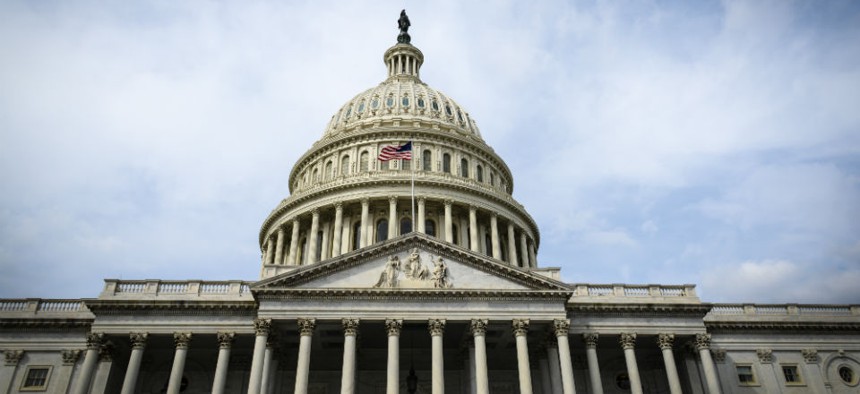Federal IT Overhaul Included in Defense Bill, Headed for Vote

Brandon Bourdages/Shutterstock
The House is expected to vote on the annual defense policy bill as early as this week.
This story will be updated.
The biggest legislative overhaul in nearly 20 years to the way the federal government buys information technology has cleared a key hurdle and is headed for votes in both houses of Congress.
The bipartisan Federal Information Technology Reform Act -- which aims to upgrade the government’s creaky process for purchasing and building IT systems -- has made it past intense House-Senate negotiations and will be included in the compromise version of the Fiscal 2015 National Defense Authorization Act unveiled by lawmakers late Tuesday evening.
The House is expected to vote on the annual defense policy bill as early as Thursday.
FITARA, as the bill is known, was first introduced by Reps. Darrell Issa, R-Calif., the chairman of the House Oversight and Government Reform Committee, and Gerry Connolly, a Democratic member of the committee from Virginia, in spring 2013 and gained greater urgency in the wake of the HealthCare.gov debacle last fall.
Agency CIOs Get Boost
Among the bill's most significant measures is an enhancement of the role of agency-level chief information officers. Under the legislation, agency CIOs would be granted a “significant role” in programming, budgeting and decision-making related to IT management and would have a say-so in their agency’s annual IT budget requests.
The legislation would specifically bar agencies from signing any contracts for IT or IT services unless the agency CIO has signed off on the deals. The bill similarly bars agencies from reprogramming IT funds without CIO approval.
The compromise version doesn’t limit the CIO title to a single official, but the main agency CIO would have the authority to approve the appointment of any other agency officials -- at the component or bureau level, for example -- who have a similar title or carry out the function of a CIO.
CIOs would also be held to account for managing risk in their IT portfolios. The Office of Management and Budget would require agencies to publicly post a list of each of their major IT investments, including both new investments and existing systems. The publicly released data must include data on the cost, schedule and performance of each of the agency’s IT investments, categorized by agency CIOs based on risk.
For investments found to be high risk, CIOs will be required to consult with OMB on root causes and how to address them. OMB will be required to report the outcome of these review sessions to Congress.
If, a year after the initial review, the investment is still rated as high risk, the law directs the OMB director to “deny any request for additional development, modernization or enhancement funding for the investment” until the CIO determines the root causes of the cost overruns or schedule slips “and there is sufficient capability to deliver the remaining planned increments within the planned cost and schedule,” according to the bill.
Data Center Consolidation, DOD Cloud Migration Also Included
The enhancement of the CIO role, it should be noted, generally would not apply to the Defense Department. At the Pentagon, for example, the DOD CIO would not formally approve the department’s IT budget request but would instead make recommendations to the defense secretary.
Similarly, the DOD CIO alone would not conduct review sessions regarding the risk of their IT investments. Instead, the CIO would consult with the department’s deputy chief management officer and the undersecretary of defense for acquisition, technology and logistics. The review sessions would only apply to DOD’s business systems, not its national security systems, according to the bill.
The bill would also codify into law Obama administration efforts to close and consolidate federal data centers, spur the Pentagon’s shift to cloud computing and a five-year plan to expand the use special cadres of IT acquisition experts.
The House has twice voted to approve federal procurement reform. The Senate Homeland Security and Governmental Affairs Committee approved a version of the bill last spring.
An effort to include IT reform in last year’s defense policy bill fell short.
(Image via Brandon Bourdages /Shutterstock.com)
NEXT STORY: Make open data actually work





